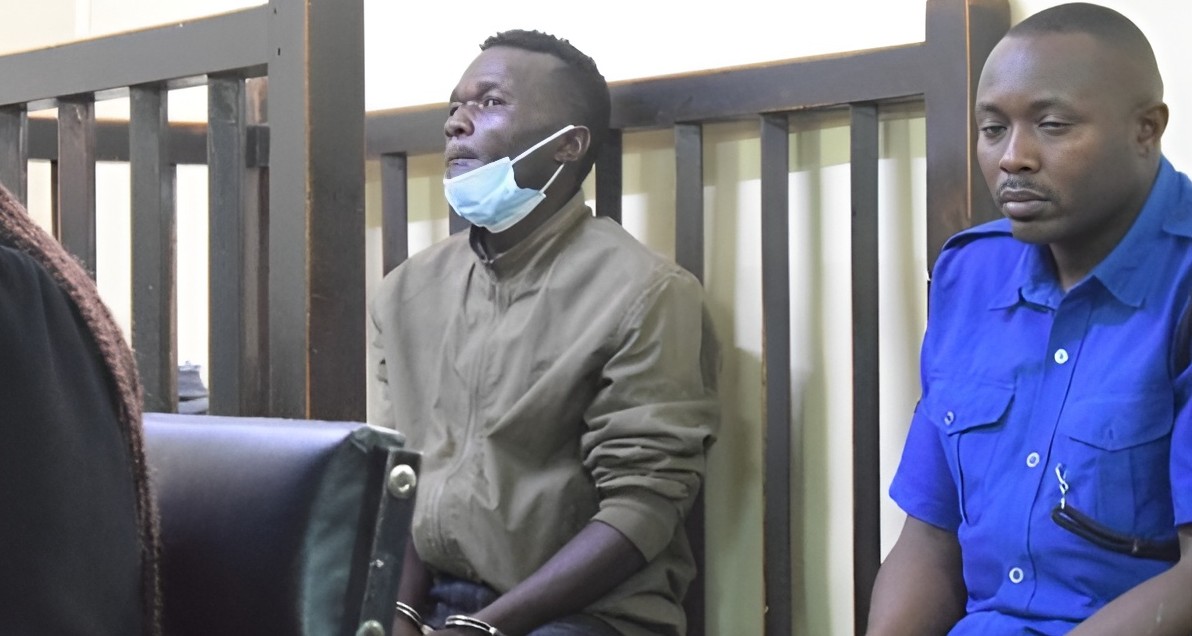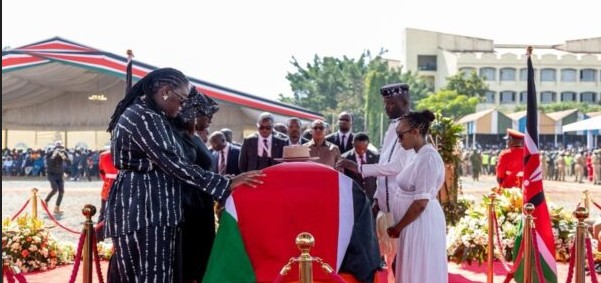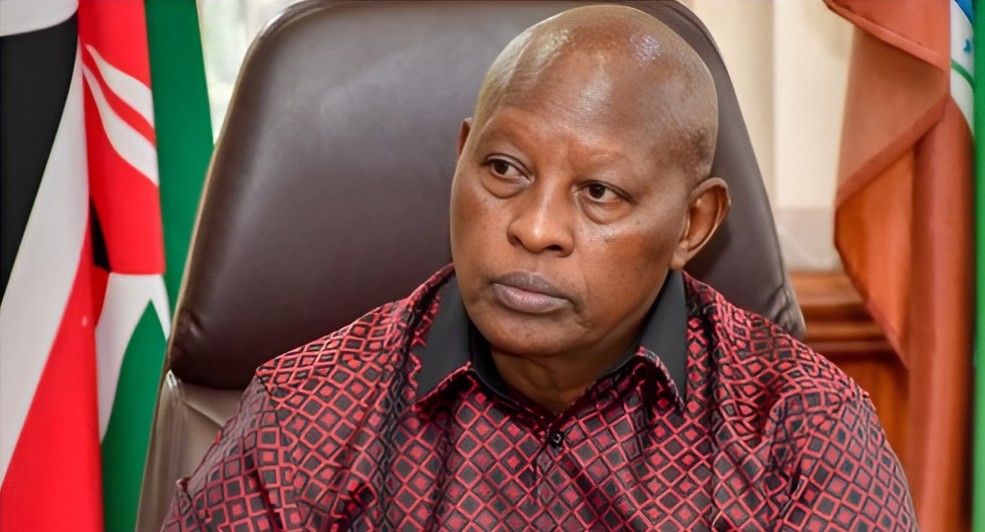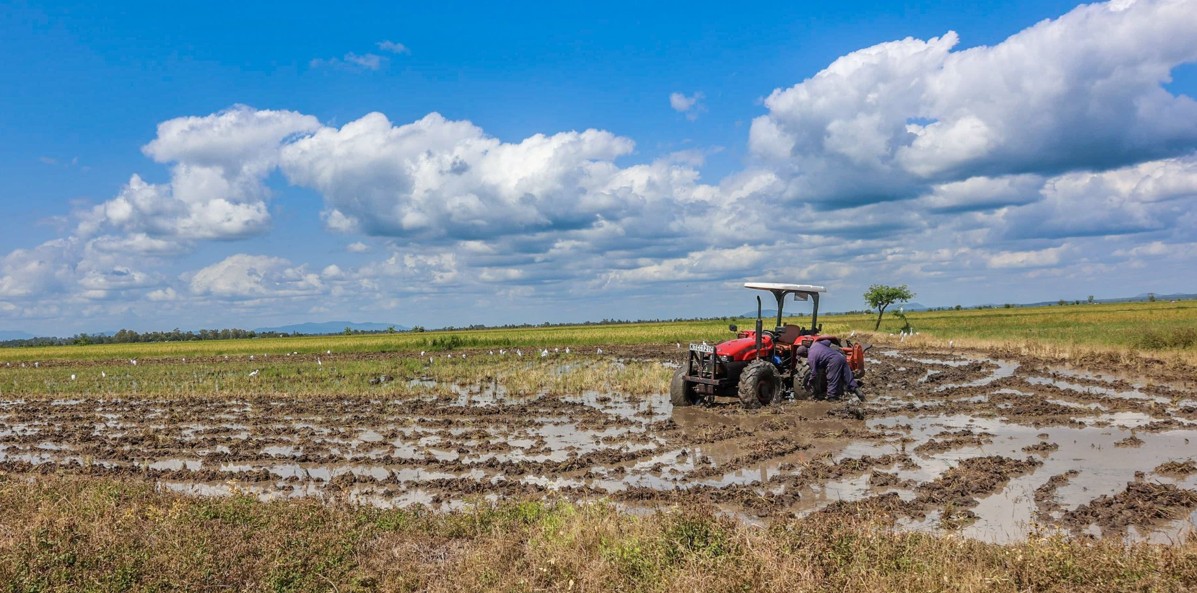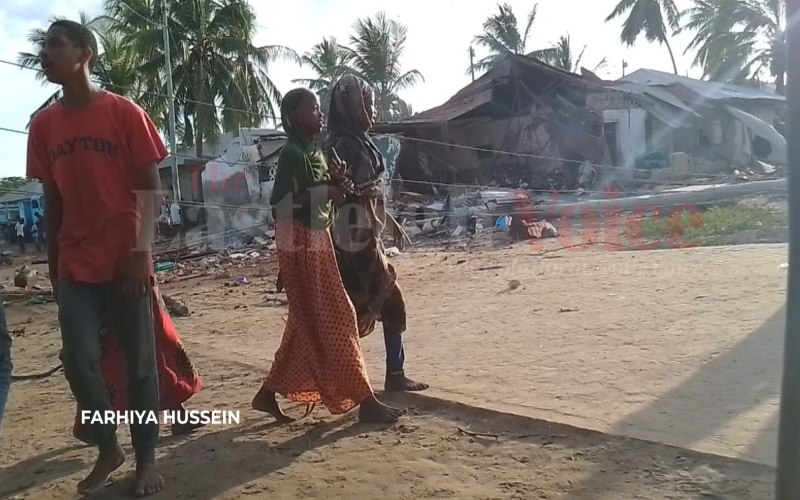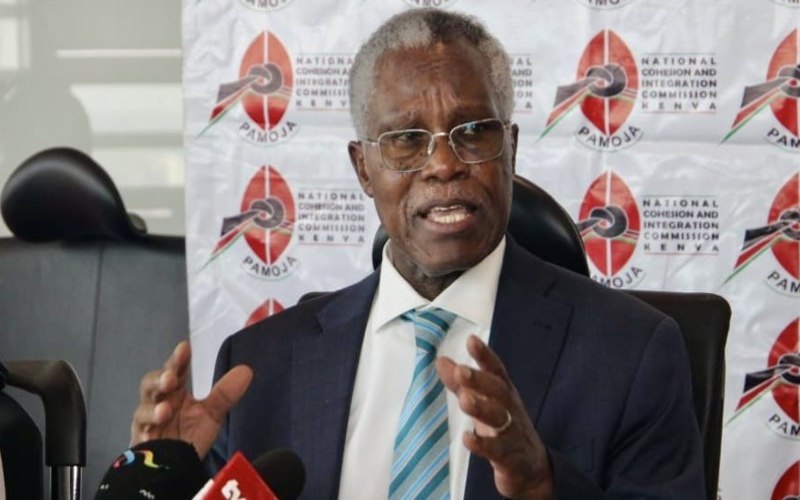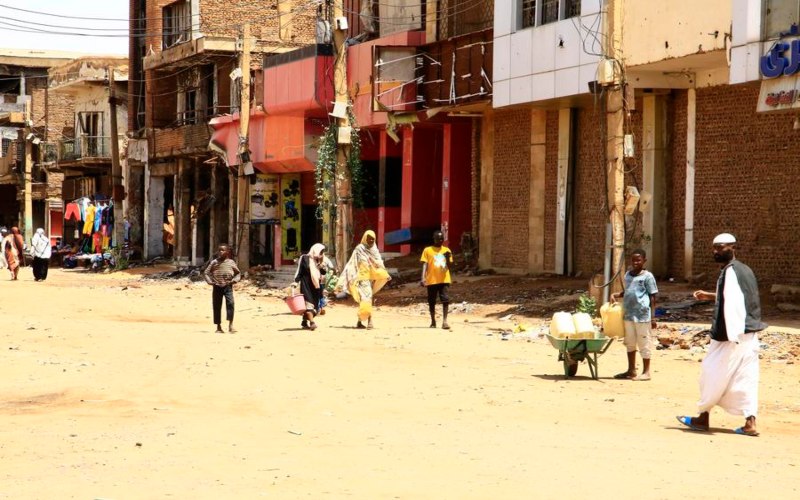UK reaffirms support for justice in Agnes Wanjiru case in response to Kenyan inquiry

The UK government has formally submitted its response to Kenya's Defence Relations and Intelligence Committee’s inquiry into the activities of the British Army Training Unit in Kenya (BATUK).
In the public document, the UK reaffirms its support for Kenyan authorities’ ongoing efforts to secure justice in the Agnes Wanjiru murder case, emphasising that the matter falls under Kenyan jurisdiction in line with the Defence Cooperation Agreement (DCA) between the two nations.
More To Read
- Kenya commences extradition proceedings of British soldier accused of Agnes Wanjiru's murder
- Defence Secretary Healey meets Agnes Wanjiru’s niece, reaffirms UK commitment to justice in murder case
- Seven Kenyan men prove paternity case against BATUK soldiers
- Kenya, Ethiopia sign second defence agreement, allowing intelligence sharing of security threats
- FIDA-Kenya presses Kenya, UK to extradite soldier in Agnes Wanjiru murder case
- Explained: Kenya’s path to extraditing Agnes Wanjiru murder suspect
"The UK MOD is aware that, in September 2025, the Kenyan Director of Public Prosecutions determined that a British National should face trial in relation to the unlawful killing of Agnes Wanjiru. As this crime is alleged to have been committed while not in the course of official duties, Kenya holds jurisdiction for this case in line with the DCA. The UK provided support to the Kenyan investigation whenever requested to do so, which has included visits by Kenyan investigators to the UK and by the UK's Provost Marshal (Serious Crime) to Kenya. The UK MOD will continue to support Kenyan authorities as appropriate," the document states.
Archer's Post killing
At the same time, the UK acknowledges concerns surrounding the 2012 death of Tilam Leresh, who was shot and killed by an on-duty British soldier at the Archer's Post Training Area.
According to the UK’s response, the incident occurred in the course of official duty and was therefore investigated by the British Service Police, who referred the case to the independent Service Prosecuting Authority (SPA) for possible prosecution.
In December 2012, however, the SPA determined that there was insufficient evidence to charge the soldier.
"Upon receipt of the written ruling issued by the Kenyan Chief Magistrate at the conclusion of the inquest into the death of Mr Leresh in March 2024, the SPA conducted a further detailed review of the evidence in the case and again concluded that no charge would be brought because there was insufficient evidence to prove the killing was not done in lawful self-defence. The UK is always prepared to consider new evidence if it is presented to us," it adds.
On Tuesday, the Office of the Director of Public Prosecutions (ODPP) told the High Court in Nairobi that Kenya had formally transmitted an extradition request for the key suspect, Robert James Purkiss, to the Attorney General, who is legally mandated to forward such requests to the UK.
The move marked the formal commencement of the extradition process, potentially paving the way for the 13-year-old murder case to finally be prosecuted and those responsible held accountable.
Complex process
Justice Alexander Muteti acknowledged that extradition is a complex process involving diplomatic engagement between Kenya and the UK, and directed the DPP to fast-track the proceedings without publicly disclosing the evidence in their possession.
Last month, the ODPP secured an arrest warrant for the soldier and sought INTERPOL’s intervention through the Directorate of Criminal Investigations (DCI) pending the start of extradition proceedings. The development renewed hope that the long-delayed case would finally deliver justice to Wanjiru’s family.
The UK government, as acknowledged by the ODPP, has remained supportive of Kenyan authorities throughout the investigation.
In April this year, UK Secretary of State for Defence John Healey reiterated his government’s commitment to justice for Ms Wanjiru’s family and conveyed the same message to her niece, Esther Njoki, during a meeting in London on October 14.
Secure justice
"The UK's thoughts remain with the family of Agnes Wanjiru, and we remain committed to both helping them secure justice and to offering our full support to the Kenyan authorities," the UK government adds.
The UK further clarified that the British Army does not tolerate sexual exploitation or abuse within BATUK.
"There is absolutely no place for sexual exploitation and abuse by people in the British Army. It is at complete odds with what it means to be a British soldier. It preys on the vulnerable and benefits those who seek to profit from abuse and exploitation," says the UK.
Despite this stance, the report acknowledges that transactional sex still occurs at a low to moderate level, though it should not be happening at all.
The UK notes that British soldiers deployed to Kenya are briefed on the terms of the DCA, and in cases involving serious criminal offences—such as homicide, sexual assault, or other serious crimes—investigations are conducted either by Kenyan police or the UK Service Police, depending on jurisdiction under the agreement.
Top Stories Today

